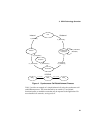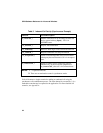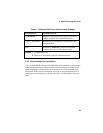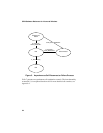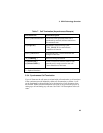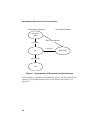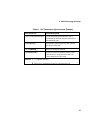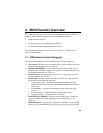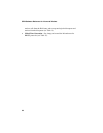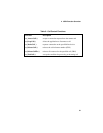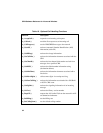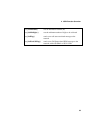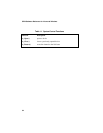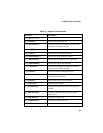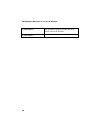
29
4. ISDN Function Overview
This chapter provides the following information about the Dialogic ISDN library
functions used to interact with the network in an ISDN environment:
• ISDN function categories
• a brief description of each ISDN library function
• the ISDN technologies supported for each function
For a complete description of each function, see Chapter 5. ISDN Function
Reference in this guide.
4.1. ISDN Library Function Categories
The ISDN library functions can be divided into the following categories:
• Call Control - Perform basic call control actions, such as making, receiving,
answering and dropping calls (see Table 9).
• Optional Call Handling - Perform additional call control actions, such as
accepting calls, sending messages to the network, and setting and retrieving
call-related information (see Table 10).
• System Control - Start and stop the system, that is, open and close devices
and reset channels (see Table 11).
• System Tools - Perform system level tasks (see Table 12). These functions
are divided into the following categories:
• Configuration Tools - set and retrieve channel parameters and user
attributes, and retrieve call states, call reference numbers, call reference
values, etc.
• Error Handling - retrieve error information (cause values and result
values)
• Tracing Functions - capture and store D channel information
• Eventing Functions - set and retrieve event masks
• Data Link Layer Handling - Send and receive frames, that is, handle the
transfer of frames between the application and the data link layer (see
Table 14).
• Hold and Retrieve - Process calls on hold. These functions are used in BRI
protocols and in the PRI DPNSS and Q.SIG protocols to place calls on hold,



